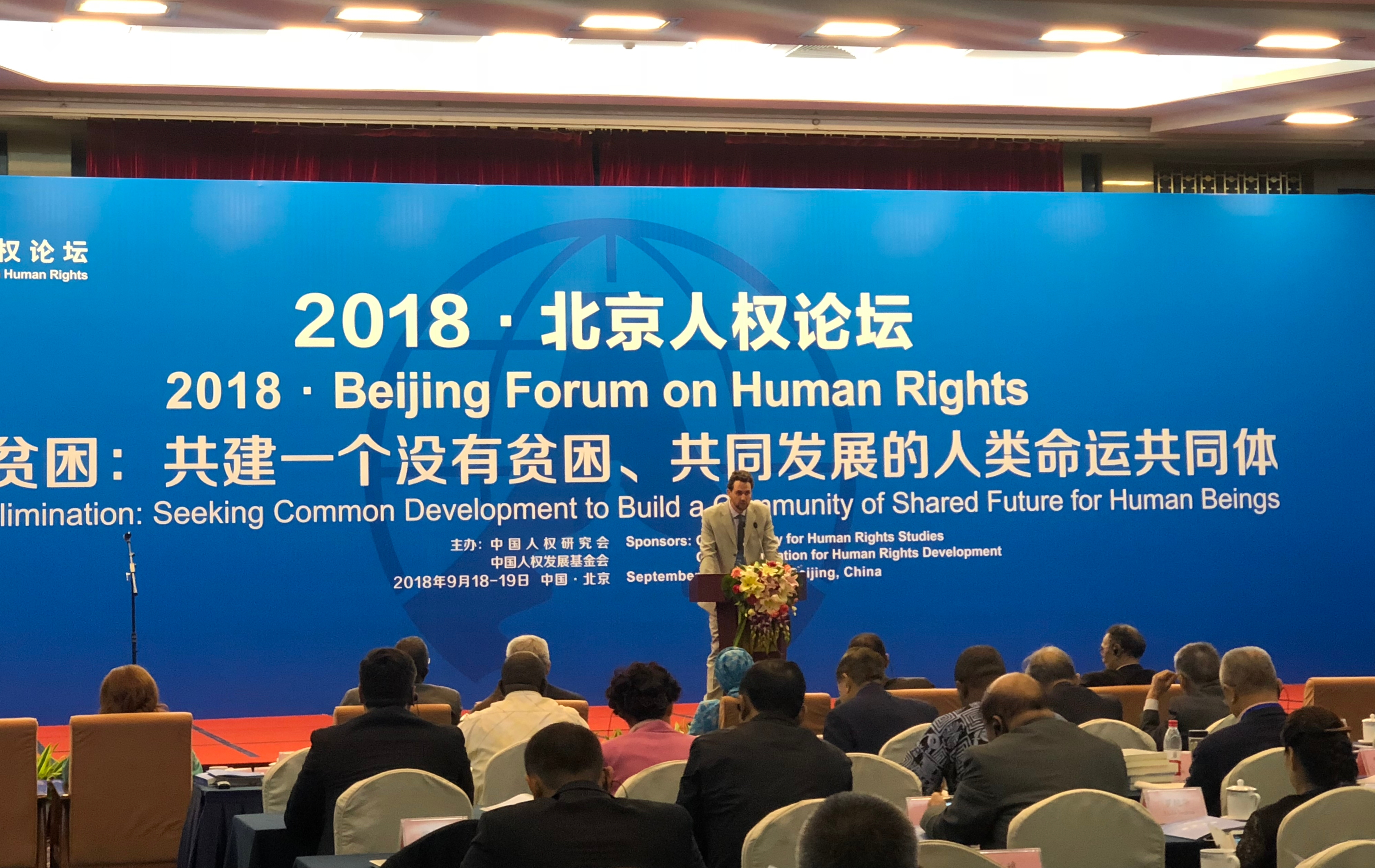Building a community of shared future for humanity
- By George N. Tzogopoulos
 0 Comment(s)
0 Comment(s) Print
Print E-mail China.org.cn, September 25, 2018
E-mail China.org.cn, September 25, 2018

The Herculean task China faces in trying to alleviate and finally eliminate poverty is a regular feature of the Chinese political and media discourse. However, knowledge of how other countries, especially in the West, tackle this problem remains limited though, although efforts are being made to change this.
The China Society for Human Rights Studies and the China Foundation for Human Rights Developments recently organized a forum in Beijing, bringing together domestic and foreign politicians, diplomats and scholars to exchange views on this subject with an objective of seeking common development in building a community of shared future for humanity.
According to the Universal Declaration of Human Rights adopted by the UN General Assembly in 1948 – "everyone has the right to a standard of living adequate for the health and well-being of himself and his family."
This was the starting point for the forum's discussions on how Chinese governments over the last few decades have sought to improve living conditions, especially for rural populations. These efforts have lifted more than 700 million people out of poverty, culminating in the vision of President Xi Jinping to create a relatively prosperous society by the end of 2020.
The Beijing meeting produced 10 pertinent conclusions on the issue. First, the notion of human rights is interpreted differently in China and the West and more understanding is required. However, this different interpretation should not constitute an obstacle to dialogue and Chinese understanding of human rights deserves better attention in the West.
Second, a country needs to prioritize its own human rights problems before criticizing others. And if its economic status allows it, it should provide proportional external assistance through bilateral initiatives and multilateral frameworks such as the UN, the World Bank etc.
Third, when external assistance is provided – in the case of Chinese aid in Africa for instance – neo-colonial theories are not necessarily applicable. Prosperity remains a universal goal for any community and is readily understandable.
Fourth, development is closely linked to the protection of human rights. A national economy is not able to guarantee the right to basic living standards if mired in recession and struggling to maintain sustainable growth rates.

Fifth, the role of education is critical, but access to it alone is not sufficient. Education needs to meet market and employability criteria and be better connected to technological advancement and innovation. Important as is literacy, it does not safeguard employment.
Sixth, measures against poverty should be based on comprehensive studies of the composition of a society. As President Xi has said, "precision is important for poverty alleviation as it determines the success of the undertaking." Corruption can thus be prevented and targeted actions realized.
Seventh, poverty alleviation through industrialization also includes risks, such as inefficient productivity, abuse of power in execution and the inability to repay loans. Although governmental support is necessary, subsidies have to be reduced in the medium and long-term. Better supervision of different projects might be a solution to the problem.
Eighth, the refugee crisis in the West prevents, or at least delays, the building of a community of shared future. The lack of multiculturalism, the indifference of several countries to proportionally hosting more refugees and the rise of far right parties opposing refugee immigration create dividing lines in many societies.
Ninth, Europe is currently suffering high unemployment, especially among the young. Poverty and inequality are increasing because of the crisis distinguishing the richer North from the poorer South. A closer look at the Chinese experience – both at the national and local level – could be perhaps useful for European policy-makers and scholars.
And tenth, international initiatives such as the recent forum on human rights need to continue, not only in China but also elsewhere. This is how good experiences and practices – for example efficient legal frameworks – can be shared among participants with different backgrounds.
Beyond these 10 observations China can certainly look ahead with optimism. Although the task of eradicating poverty has not yet been completed, and requires even harder efforts, previous success along with the realization of new ideas such as the Belt and Road Initiative do fuel hopes for more jobs and additional self-motivation and creativity for all.
George N. Tzogopoulos is a columnist with China.org.cn. For more information please visit:
http://www.china.org.cn/opinion/GeorgeNTzogopoulos.htm
Opinion articles reflect the views of their authors, not necessarily those of China.org.cn.






Go to Forum >>0 Comment(s)